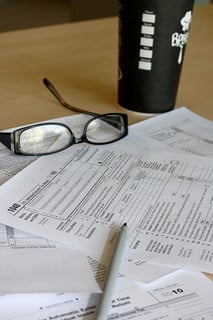 A client called us the other day and asked, "Do you have to pay tax after settlement?"
A client called us the other day and asked, "Do you have to pay tax after settlement?"
In most cases, the answer is NO.
When you negotiate a settlement on a debt you owe, let's say a credit card with a $10,000 balance is settled for $4,000 (yes it is very possible!), the amount that is FORGIVEN may be added back into your taxable income for that year.
At the end of the year, you will receive a 1099-C in the mail that states that the creditor has reported the $6000 of forgiven debt to the IRS (any amount forgiven over $600 may be subject to IRS reporting).
What do you do when you receive a 1099-C?
First, if your accountant or tax preparer tells you that you will have to pay tax on that amount, you probably need to find a new accountant!
Why? It has been my experience that most accountants and tax preparers are not aware or experienced in how to treat 1099-C for settlements or forgiveness.
IRS Form 4681 explains that certain amounts of "forgiven debt" may be excluded from taxable income. Basically, if AT THE TIME OF FORGIVENESS, you were INSOLVENT (your debts were greater than your assets), then the forgiven amount IS NOT included as taxable income.
List all of your assets:
- Any equity you have in your home
- Net or depreciated value of your cars, boat, etc.
- Net value of your jewelery, stocks, bonds, etc.
- Cash
Now list all of your debts:
- Mortgage (First and Second) on your home
- Lines of credit
- student loans
- credit cards
- medical bills
- personal loans
Subtract the DEBTS YOU OWE from your ASSETS. If the number is negative, then you are "insolvent" according to the IRS. Complete IRS Form 982 and check the appropriate boxes to show that this amount should be excluded.
The moral of this story, don't think that just because your accountant or anyone else tells you that you must automatically pay tax after settlement, that it is always true.
photo by: Alan Cleaver



 If you have had a debt "forgiven", and receive a 1099-C, how do you avoid paying taxes?
If you have had a debt "forgiven", and receive a 1099-C, how do you avoid paying taxes?

